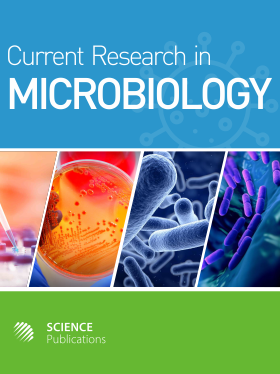Microbial Consortia from Taptapani Hot Water Springs for Mining Effluent Treatment
- 1 West Bengal University of Technology, India
- 2 Bhabha Atomic Research Center, India
- 3 West Bengal State University Barasat, India
Abstract
Problem statement: Soluble sulfate load in effluent is a crucial problem from mining industries. The study involved isolation of efficient Sulfate Reducing Bacterial (SRB) consortium from hot water spring for bioremediatrion of sulfate contaminated waste water. Approach: The enriched bacterial consortium was isolated in medium DSMZ 16695. The sulfate reduction efficiency was measured by turbidometric method. The Km and Rmax value of the consortium was determined. It was immobilized in 10L bioreactor and the sulfate reduction was measured in presence of media and mine effluent. Results: The consortium was found to reduce 2000ppm of sulfate in 36h under optimum condition. The Km of 1.1530 ppm and Rmax value of 0.030h−1 was obtained under optimum conditions of pH-7.5 at 40°C with 2% inoculum. Consortium immobilized under ambient condition in a 10L packed bed reactor yielded about 21-41% reduction of soluble sulfate in synthetic medium prepared using effluent water and tap water respectively. Conclusion: This study reports for the first time the use of efficient SRB consortia from hot water spring for bioremediation of mine effluent.
DOI: https://doi.org/10.3844/ajmsp.2010.23.29

- 6,983 Views
- 4,165 Downloads
- 2 Citations
Download
Keywords
- Sulfate reducing bacteria
- sulfate remediation
- packed bed bioreactor
- taptapani hot water spring
- microbial consortium
